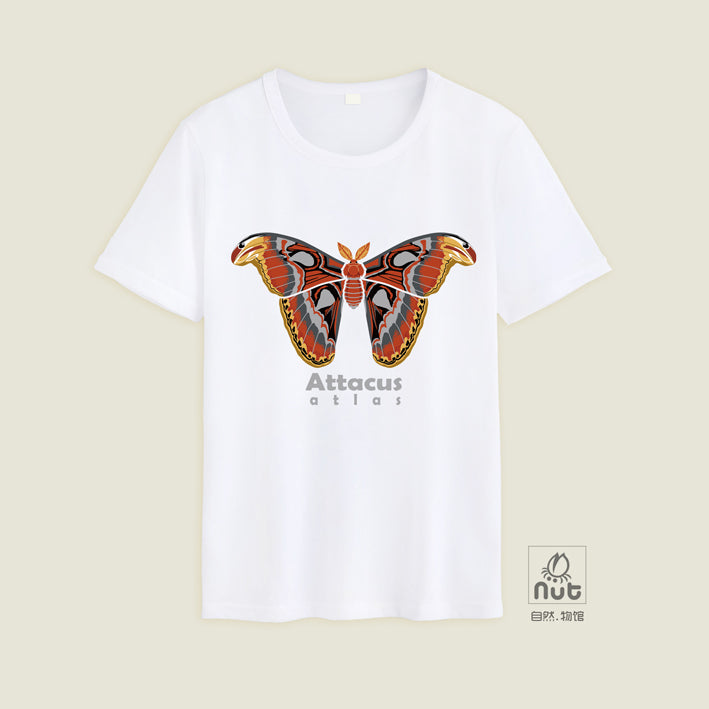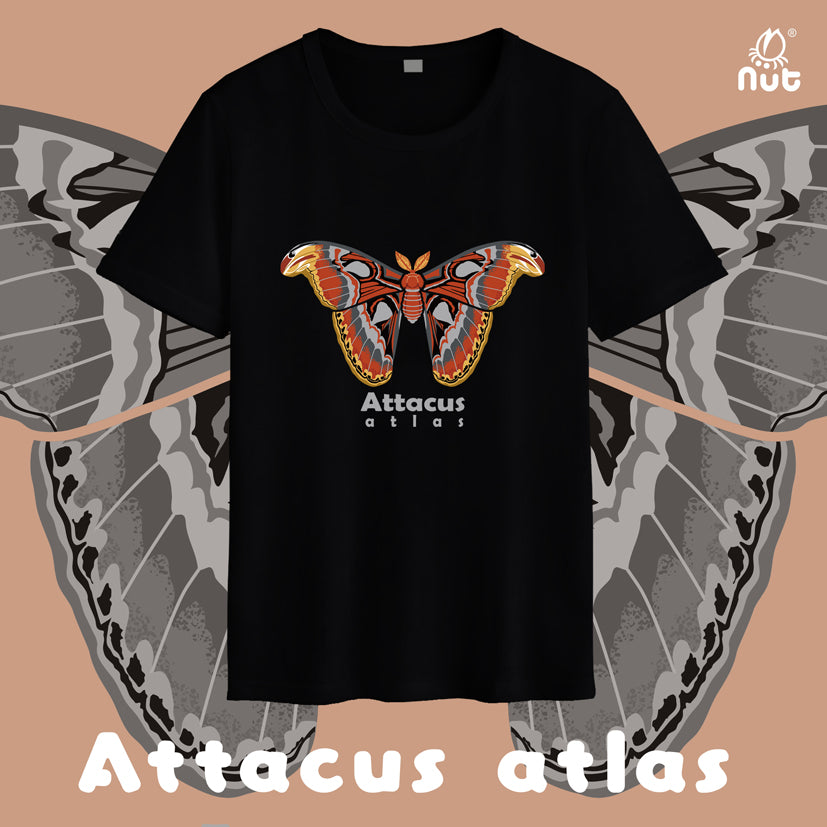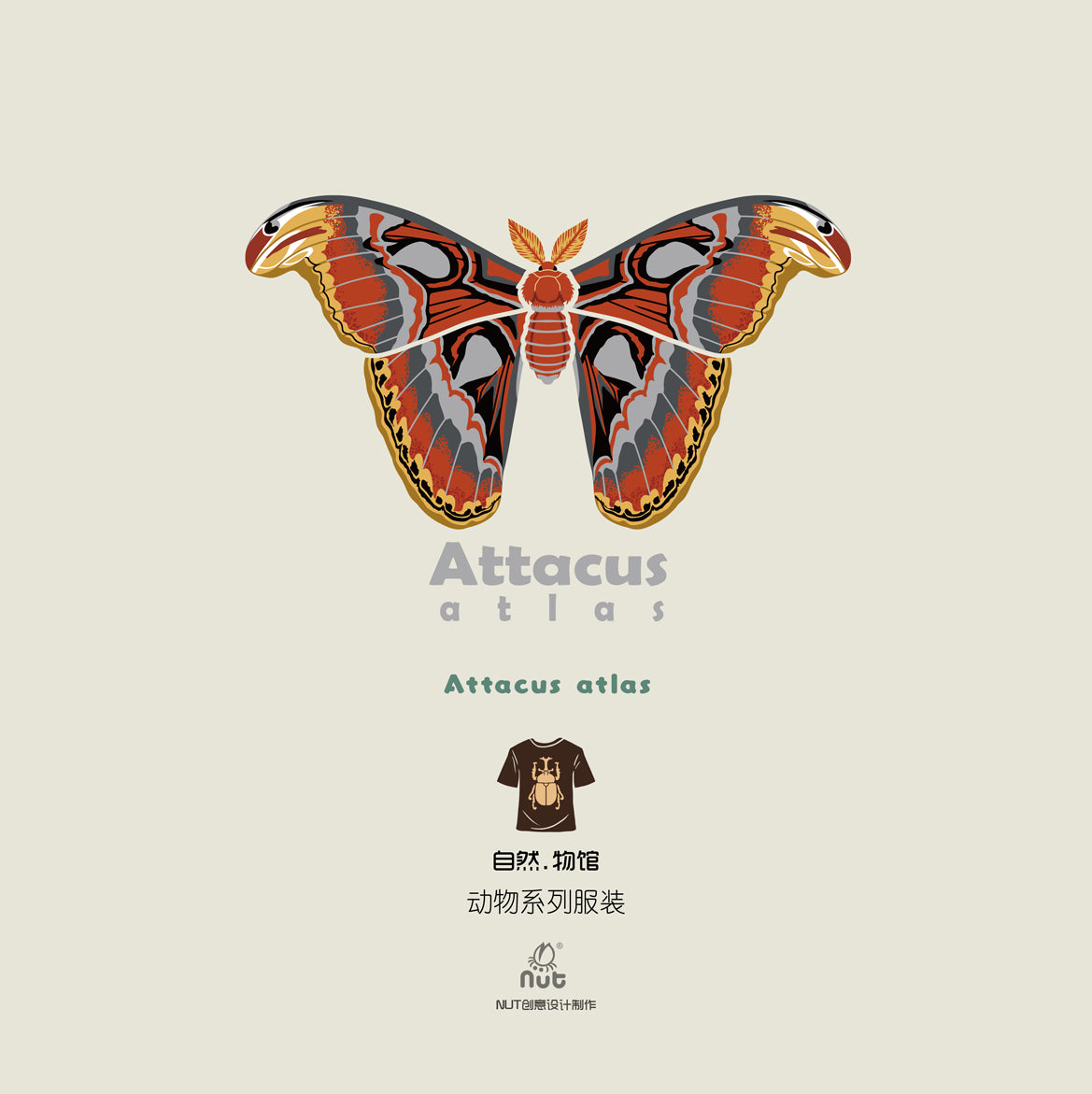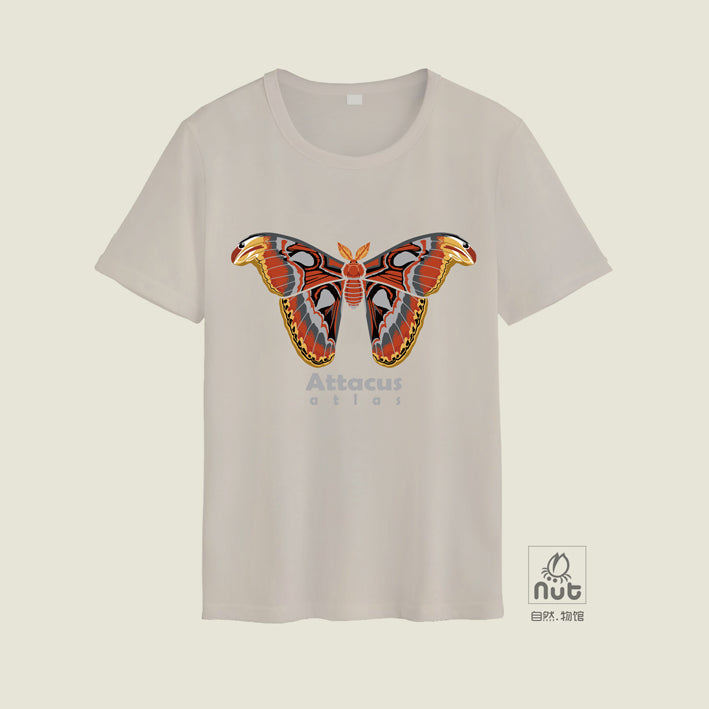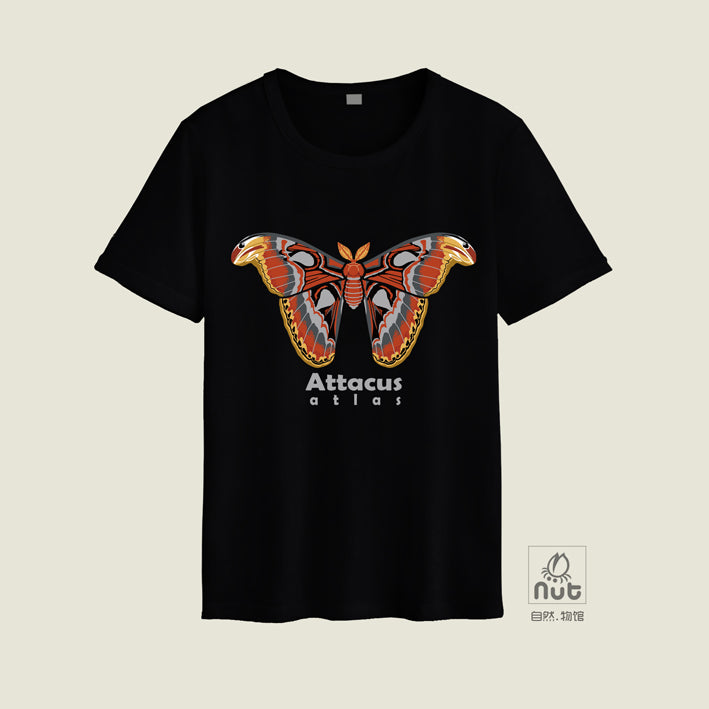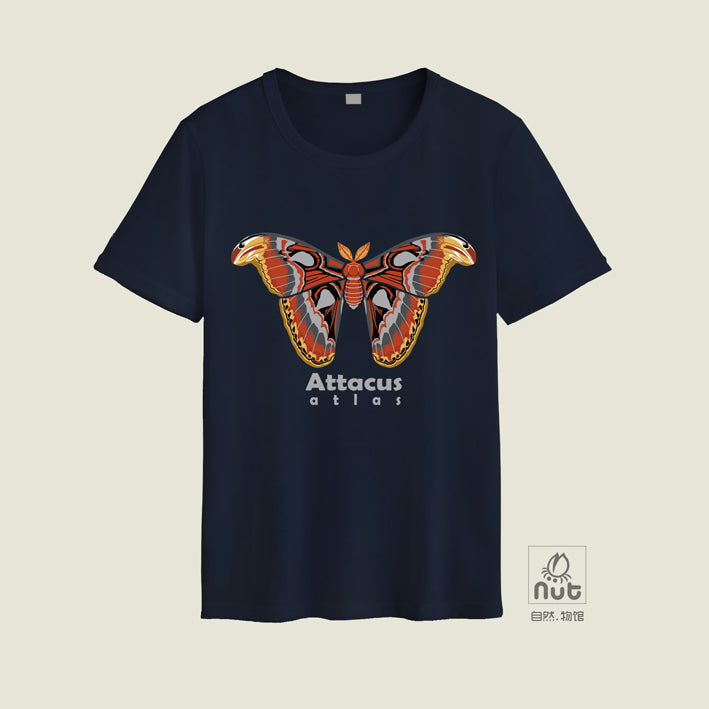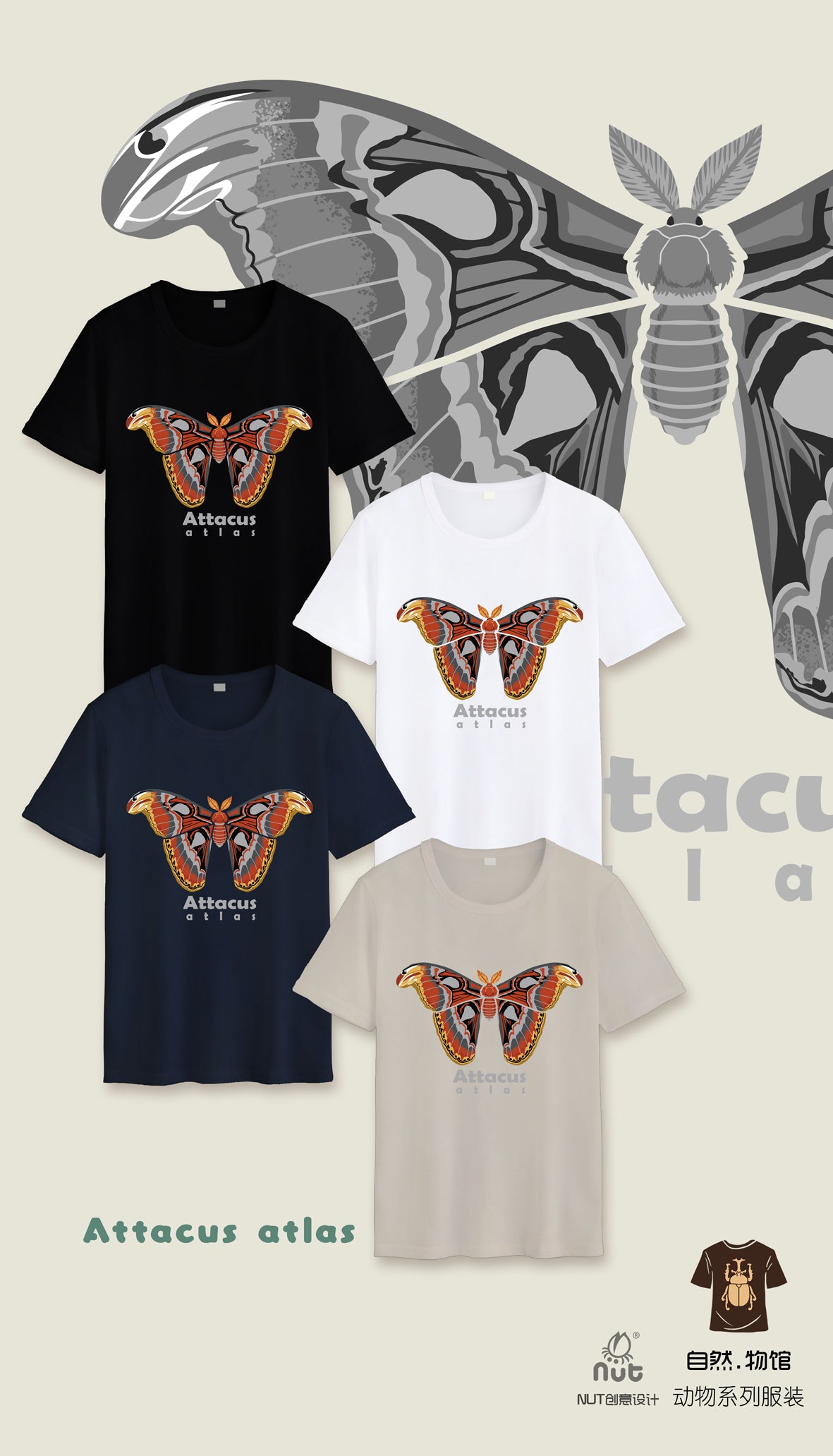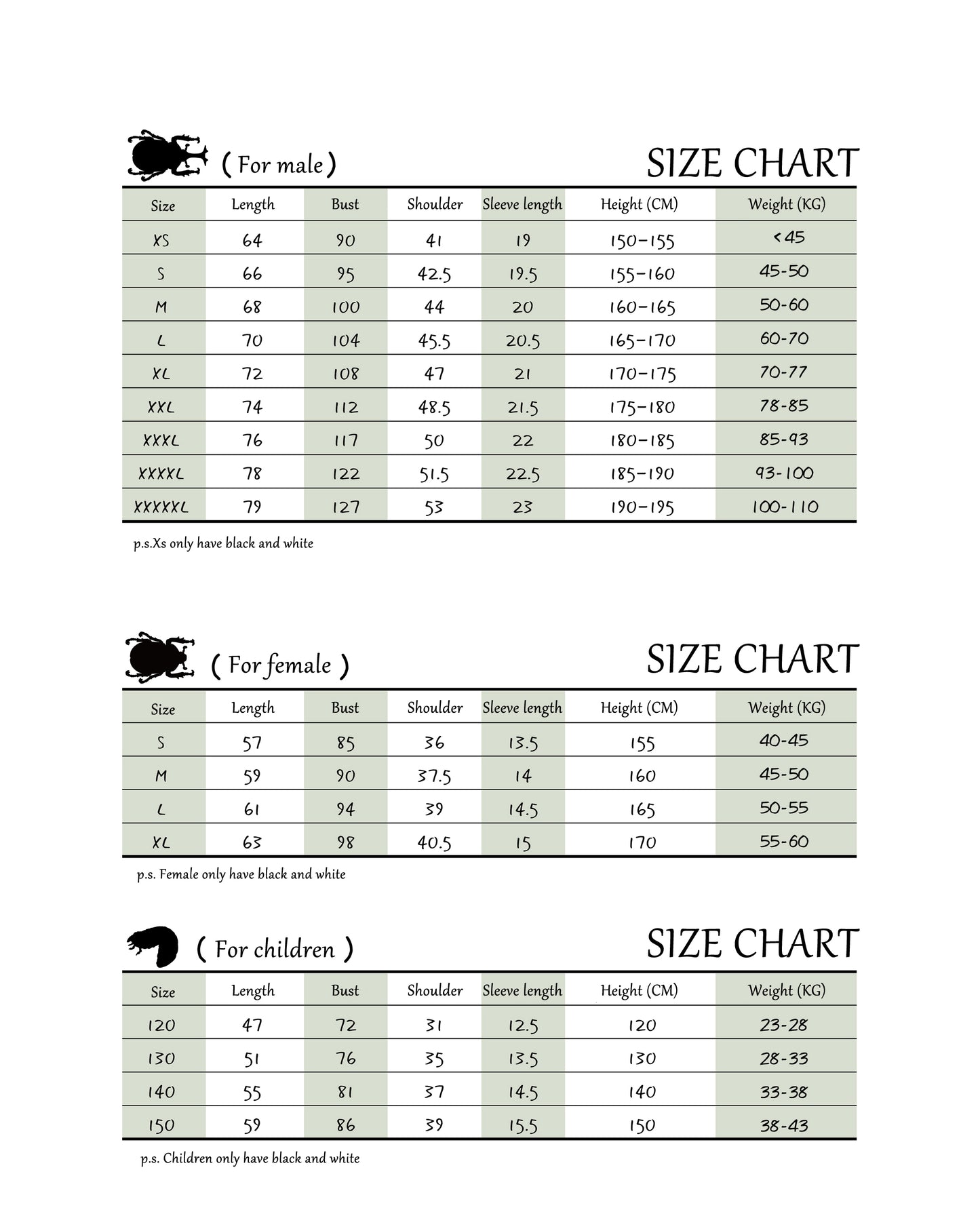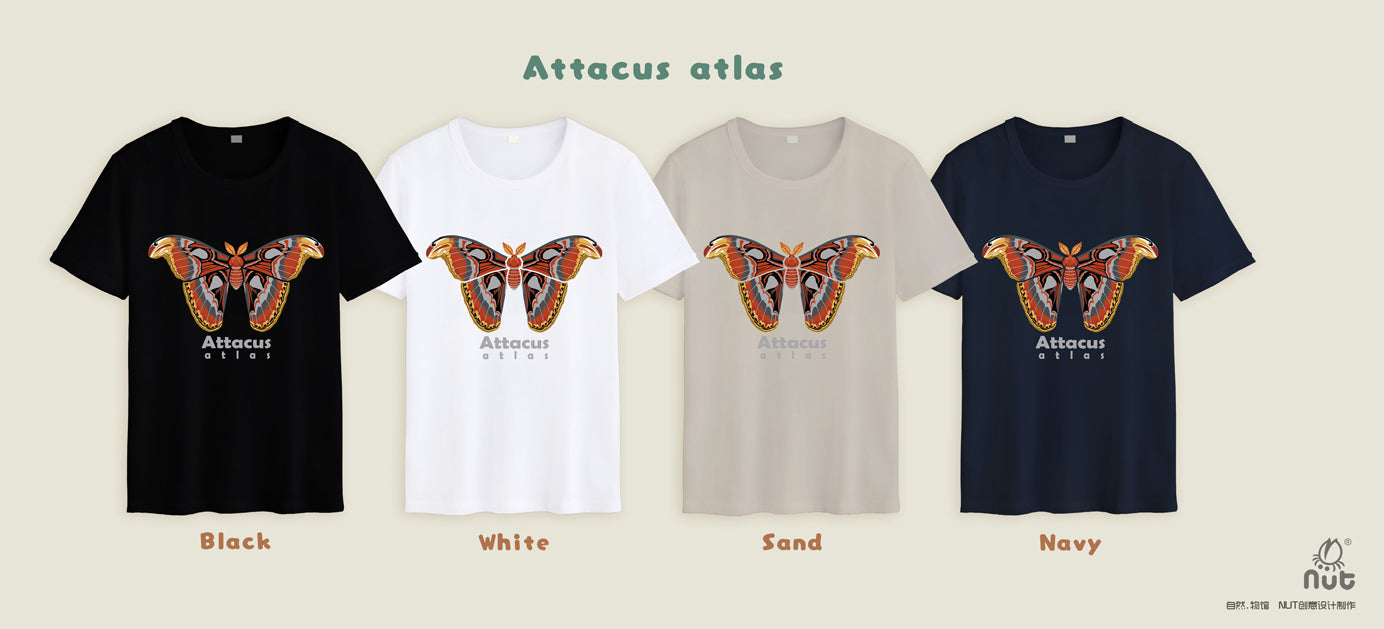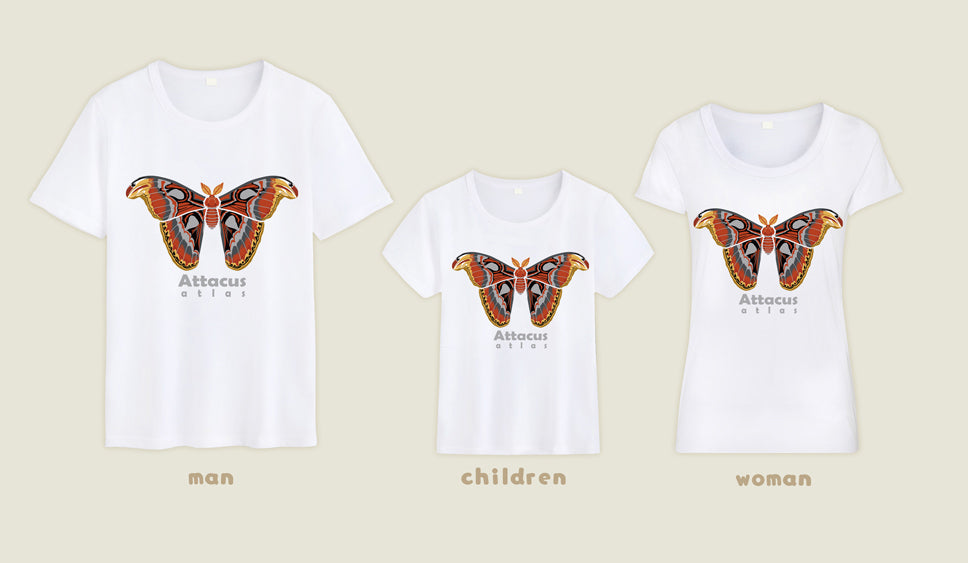Nut Insect Nature Design
T-shirt Attacus atlas
T-shirt Attacus atlas
Normaler Preis
$39.80 USD
Normaler Preis
Verkaufspreis
$39.80 USD
Grundpreis
pro
Versand wird beim Checkout berechnet
Verfügbarkeit für Abholungen konnte nicht geladen werden
Attacus atlas, also known as the Atlas Moth, is one of the largest species of moths in the world. They are native to the tropical and subtropical forests of Southeast Asia, including India, China, and Indonesia.

The Atlas Moth is known for its distinctive wing shape and coloration, featuring intricate patterns of browns, yellows, and purples. They have a wingspan of up to 25 centimeters, making them an impressive sight.

In their natural habitat, Atlas Moths can be found in forested areas, where they feed primarily on tree sap and nectar. They are also known to be attracted to light sources at night.

One of the most interesting habits of the Atlas Moth is its unique life cycle. Adult females lay their eggs on the undersides of leaves, and the caterpillars that hatch from these eggs spin large, cocoon-like structures around themselves for protection. These cocoons can be quite heavy and sturdy and are sometimes used for decoration or even as purses in some cultures.

Despite their stunning appearance, the Atlas Moth is not considered to be threatened at present, although deforestation and other human activities could potentially impact their populations in the future.

The Atlas Moth is known for its distinctive wing shape and coloration, featuring intricate patterns of browns, yellows, and purples. They have a wingspan of up to 25 centimeters, making them an impressive sight.

In their natural habitat, Atlas Moths can be found in forested areas, where they feed primarily on tree sap and nectar. They are also known to be attracted to light sources at night.

One of the most interesting habits of the Atlas Moth is its unique life cycle. Adult females lay their eggs on the undersides of leaves, and the caterpillars that hatch from these eggs spin large, cocoon-like structures around themselves for protection. These cocoons can be quite heavy and sturdy and are sometimes used for decoration or even as purses in some cultures.

Despite their stunning appearance, the Atlas Moth is not considered to be threatened at present, although deforestation and other human activities could potentially impact their populations in the future.
